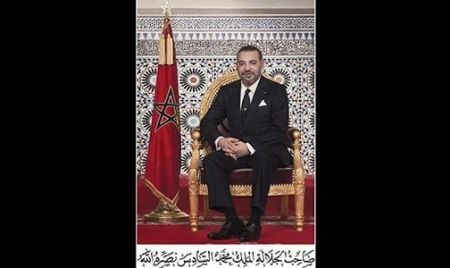HM the King Calls for International Resolution to Impose Immediate, Sustainable Ceasefire in Gaza
HM King Mohammed VI called, on the occasion of the International Day of Solidarity with the Palestinian People, on the international community to take a clear, binding decision to impose an immediate, sustainable ceasefire in Gaza. The persistence of the humanitarian catastrophe in Gaza, and the continued targeting of civilians are calling out to the conscience of the international community, particularly the influential powers and the UN Security Council, which is the international mechanism responsible for maintaining security, stability and peace in the world, the Sovereign said in a message to Chairman of the Committee on the Exercise of the Inalienable Rights of the Palestinian People, Sheikh Niang. In this regard, HM the King called on the influential powers and the UN Security Council to “put an end to the current state of division, speak with one voice and take a clear, binding decision to impose an immediate, sustainable ceasefire, making sure international law and international humanitarian law are respected”. The Sovereign recalled the four urgent priorities drawn up by HM the King to stop the killing of humans: Bring about urgent, tangible de-escalation and stop military attacks to pave the way for a permanent, verifiable ceasefire; ensure the protection of civilians; allow for the steady delivery of humanitarian aid, in sufficient quantities, to the inhabitants of Gaza; and create a political environment that can help revive the two-state solution. The recent escalation, HM the King underlined, is an inevitable consequence of the political stalemate observed in the Palestinian issue, while this question will remain key to peace, stability and prosperity in the region. “The recent escalation is also the result of Israel’s systematic, extremist practices, unilateral measures and repeated provocations in Al-Quds, which undermine efforts to calm the situation; they also ruin international initiatives designed to end tensions and frustration, and to break the deadly cycle of violence”, the Sovereign noted. HM the King stressed that the Israeli military reprisals in the Gaza Strip have shown serious violations of the provisions of international law and international humanitarian law, reiterating His rejection and condemnation of “all these violations, together with the policy of collective punishment, forced displacement and any attempt to impose new facts on the ground”. “The Gaza Strip is an integral part of the Palestinian territories and of the unified Palestinian State”, the Sovereign reaffirmed, emphasizing “the urgent need for our Palestinian brothers and sisters in the Gaza Strip to have safe, adequate, sustainable and unfettered access to relief aid”. In this regard, HM the King recalled the delivery of urgent humanitarian aid to the inhabitants of the Gaza Strip, as a contribution from the Kingdom of Morocco to the international community’s relief and aid efforts. Notwithstanding the sense of gloom and the lack of prospects for a settlement in the Middle East, the Sovereign underlined being “hopeful the international community will make concerted efforts to revive the peace process”, adding that peace, a strategic option, is the only way to guarantee security and stability for all the peoples concerned and to protect them from wars and violence. HM the King stressed that the key to the peace “is the two-state solution, it is the realistic solution agreed by the international community, and it can be achieved only through the negotiation process”. The Sovereign seized this opportunity to reiterate Morocco’s unwavering position regarding the just cause of the Palestinian people as well as its support for their legitimate right to establish their independent state, with East Jerusalem as its capital. HM the King, Chairman of the Organization of Islamic Cooperation’s Al-Quds Committee, insisted, once again, on the need to preserve the unique character of the city of Al-Quds and to refrain from changing its legal, cultural, historical or demographic status as “a spiritual center for the followers of the three monotheistic religions”.

